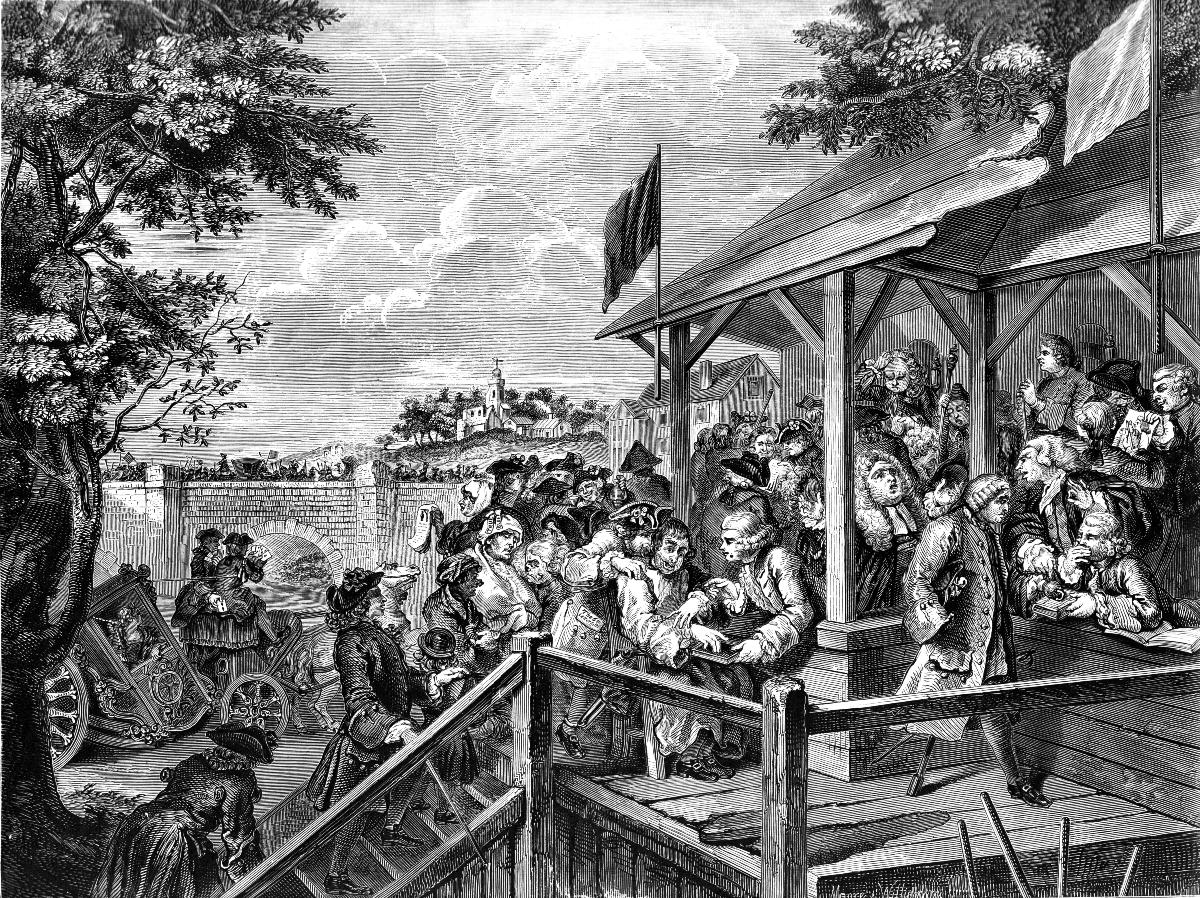 |
| William Hogarth's satire The Polling (1758), shows the few electors being 'encouraged' |
It sounds farcical, but until rotten boroughs were abolished in 1832, that was how the system worked. A few people, wielding a disproportionally huge amount of influence. It made no sense, but up until the 1830s, it suited the establishment of the time.
Then in 1832, rotten boroughs were replaced, and in their place came Safe Seats.
Safe seats give an illusion of democracy, an election occurs, leaflets are published, hustings are organised - but just like the rotten boroughs of yore, the result is never in doubt. In the 2010 general election, the predictability of safe seats meant that of the 650 seats contested, only votes cast in about 100 key seats really mattered. According to the Institute for Public Policy Research, the decisive seats were determined by just over 460,000 voters, 1.6% of the electorate.
OK, we've moved on a bit from the era of the rotten borough. Now instead of a handful of rich landowners holding the balance of power, it's the selection committees in 100 seats, who choose the candidates to go before the 1.6% of our fellow citizens, who by accidents of social geography happen to cast the decisive votes.
Why? Because just like in the 1830s, the system works this way because it suits those in power.
But on May 5th, you have a once in a lifetime opportunity to change this system.
By voting in the electoral reform referendum. And saying YES.
The referendum offers us a choice, to change to a more proportional system called Alternative Vote (AV), or keep the current system, First Past The Post (FPTP).
Choosing AV would mean that instead of targeting the 100 'battleground' seats, the political parties will be forced to come up with better thought-out, more inclusive policies - ones that will appeal not just to their traditional supporters, but also to supporters of other parties, whose 2nd and 3rd preferences may prove crucial. AV means no more wasted votes - everyone's vote will count.
Or we could stick with the idealogical headcount encouraged by FPTP, which forces everyone to decide which tribe they want to belong to every 5 years. In many parts of the country, only one party has EVER been elected. But is that really democracy? No wonder so many of us are disenchanted with politics. Disagree, and depending on where you live, your voice just won't be heard.
In FPTP, the minority can govern the majority (look back over the last 30 years).
But in AV, because of the 50% rule, it will be the majority that governs the minority.
It's time to finally get rid of rotten boroughs, and replace them with something fairer.
Vote YES to AV.
|
|





